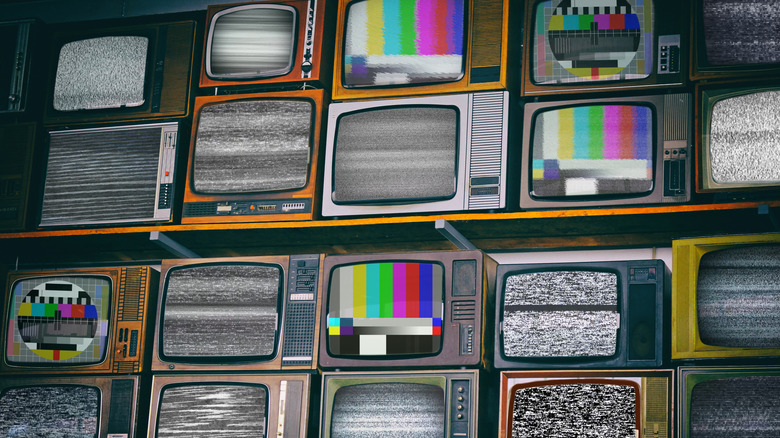We’ve all been there: you’re laying on the couch, you feel your eyelids growing heavy, and you just manage to turn off the television before the final remnants of consciousness escape you, when, suddenly, something bizarre begins to happen: your TV begins to make noises of its own accord. At first, you think your mind might be playing tricks on you. But then you move closer and realize with unmistakable clarity that your television is making an eerie cracking noise, all on its own.
Now, it is absolutely normal to have a mini freak out when this happens. But don’t worry — you’re not in a scene from “Poltergeist” — nothing is about to pull you into the television. Nor is something wrong with your electrical source. An unforeseen power surge isn’t going to make your new picture box go up in smoke (even if you went with the budget-friendly option).
So, before you run to a supernatural conclusion — or worse, start thinking about mistakes to avoid when buying your next TV (primarily: check for ghosts) — consider this scientific reason for why your television is doing its best Pop Rocks impersonation whenever you turn it off at night.
Even your TV can feel the heat
So why does your television sound like it’s auditioning to become your next popcorn machine? The answer is a bit more mundane than you’d expect. Ultimately, it all comes down to the phenomenon of thermal expansion.
The concept goes back to the very basics of atomic composition. If you remember from your high school physics class, every material is constructed of atoms that, rather than remaining still, are infused with different levels of energy and, as a result, move. The degree of movement depends largely on temperature, with molecules speeding up when exposed to heat and slowing down when subjected to cold. This is true until atoms reach a temperature known as absolute zero (−273.15 Celsius or −459.67 Fahrenheit) when no energy remains to be transferred. And because temperature is the measure of the kinetic energy in a substance, it can also be vaguely considered a measure of how much the atoms in a substance are moving (for our purposes, anyway). Thus, the movement of a substance’s molecules will increase with higher temperatures and decrease with colder ones.
These changes affect the physical shape of the material at hand. Solids expand when exposed to heat because the atoms vibrate more, creating wider gaps between each atom. The opposite is also true when exposed to cold, causing the object to contract. This occurs in even the stiffest of objects, like concrete.
This is what scientists call thermal expansion and contraction — and it is exactly what you hear happening in your television set.
Snap, crackle, and pop: the soundtrack of thermal expansion
So, what does this all have to do with the sounds emanating from your TV? Well, believe it or not, what you hear is the components inside your television expanding and contracting. See, the metal and plastic components within your television set regularly experience thermal expansion and contraction depending on factors like the room’s temperature and humidity. With TVs now coming with built-in smart platforms, the TV itself might also be producing heat during use. And while it’s true that some sounds like excessive buzzing or humming can be caused by electrical feedback, that distinct cracking sound you’re hearing at night is most likely the sound of your television expanding or contracting (slightly) due to the sudden temperature change.
Why do you only hear this cracking at night? Wouldn’t these changes happen during the day if your television was constantly expanding and contracting like a belly dancer’s abdomen? Again, unfortunately, the answer is less exotic than you’d think. Most likely, the reason you’re hearing these cracking sounds at night is because, well, it’s colder than daytime. As such, the differences between the television and the room’s temperatures are greater at night than in the day, meaning your television components are moving more.
So, the next time you hear your TV crackling like a fire, know that it’s not because you own one of the weirdest televisions ever made. Instead, take it as a friendly reminder to remember the fascinating rules of thermodynamics, and delight in the mental image of your TV dancing like it’s 1999.
Source: http://www.slashgear.com/1802146/tvs-cracking-noises-night-meaning-explained/
 tvbroadview.com
tvbroadview.com



